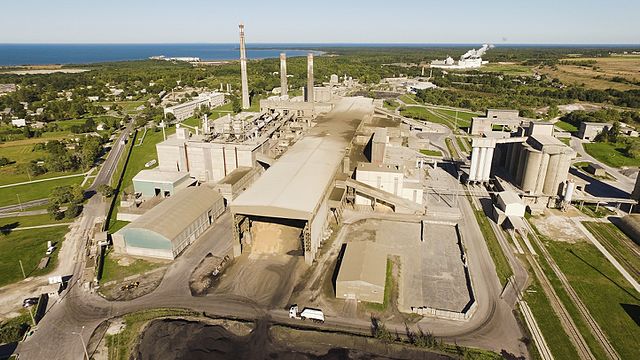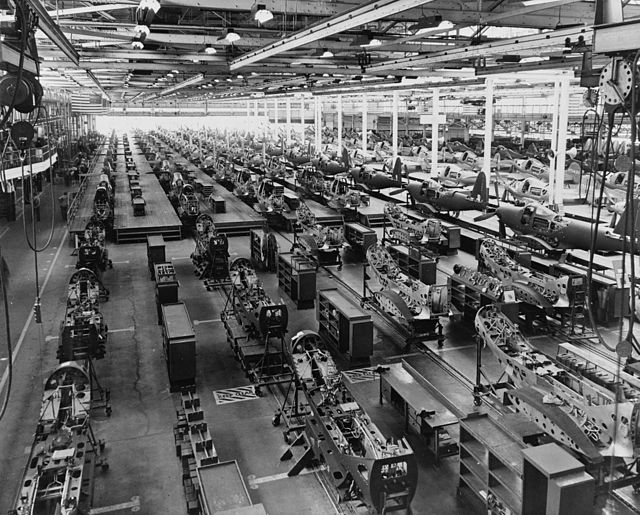Industrialisation (UK) or industrialization (US) is the period of social and economic change that transforms a human group from an agrarian society into an industrial society. This involves an extensive reorganisation of an economy for the purpose of manufacturing. Industrialisation is associated with increase of polluting industries heavily dependent on fossil fuels. With the increasing focus on sustainable development and green industrial policy practices, industrialisation increasingly includes technological leapfrogging, with direct investment in more advanced, cleaner technologies.
Industrialisation also means the mechanisation of traditionally manual economic sectors such as agriculture.
Factories, refineries, mines, and agribusiness are all elements of industrialisation.
An 1886 portrait by Robert Koehler depicting agitated workers facing a factory owner in a strike
A panorama of Guangzhou at dusk
In sociology, an industrial society is a society driven by the use of technology and machinery to enable mass production, supporting a large population with a high capacity for division of labour. Such a structure developed in the Western world in the period of time following the Industrial Revolution, and replaced the agrarian societies of the pre-modern, pre-industrial age. Industrial societies are generally mass societies, and may be succeeded by an information society. They are often contrasted with traditional societies.
Chicago and Northwestern railroad locomotive shop in the 20th century
A factory, a traditional symbol of the industrial development (a cement factory in Kunda, Estonia)
An industrial worker amidst heavy steel components (KINEX BEARINGS, Bytča, Slovakia, c. 1995–2000)
The assembly plant of the Bell Aircraft Corporation (Wheatfield, New York, United States, 1944) producing P-39 Airacobra fighters








